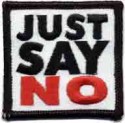Know When to “No”

Finish your homework. Clean your dirty clothes. Help your friend with their project. Apply to jobs. Help another friend move into their new dorm room. The list of things to get done grows like a self-sustaining organism, never-ending and duplicating with ease. Before you know it, there are so many items on that list that there are simply not enough hours in the day to check them all off. We all experience this at one point or another, but for some of us, knowing our limits and when to stop adding items to that list can be nearly impossible to decipher.
Saying “yes” to a request is easy. The English language offers so many positive words and phrases in order to do so: “sure”, “absolutely”, “okay”, “no problem”, and so forth. Yet saying “no” is harder, and it might not be a coincidence that we do not have as many phrases to offer a negative response. We evolved as a communal species; helping one another has been crucial to our survival. Saying no and turning someone down means fighting that instinct.
“No” takes practice. It is a skill that must be cultivated. Yet it is a necessary skill. When that to-do list explodes in excess, the inevitable burnout means accomplishing few or even none of the tasks that you set out to do. Saying “yes” to every request becomes a burden, and one that could result in homework left incomplete and bitter friends left to move into their dorm on their own after you failed to show up like you said you would. It can damage many aspects of your life.
It is important to remember that when you start using “no” more often, it will not go well at the beginning. You will stumble over your words and likely upset people who are used to you saying “yes”. But that is okay. This is a great exercise in really understanding yourself and your own personality, and determining how you feel comfortable delivering a negative response. Some people are more effective with a harsher “no”, whereas others are suited better for a softer rejection.
This raises perhaps the biggest question to ponder – when should you say no? There is the obvious fact that you can only divide your time into so many different activities. Ultimately, anything you say “yes” to must pass these two criteria: Is it true to your character and your values? Will it benefit you in some way? The more you say no, the more you will be able to assess the first question. As greedy as the second question may seem, it is far from greed. When you help a friend because it makes you feel good or because you want to strengthen that bond, you will provide better help. When you volunteer for the experience or to meet new people, you will put in a better effort. A healthy dose of self-interest is ironically quite selfless.
Sources:
Bernhard, Toni. When to Say “No” or “Not Now”. https://www.psychologytoday.com/blog/turning-straw-gold/201108/when-say-no-or-not-now?collection=88636
Mamas, Michael. How to Say “No” the Right Way, and, Yes, There Is a Right Way. www.entrepreneur.com/article/253523





Leave a comment!